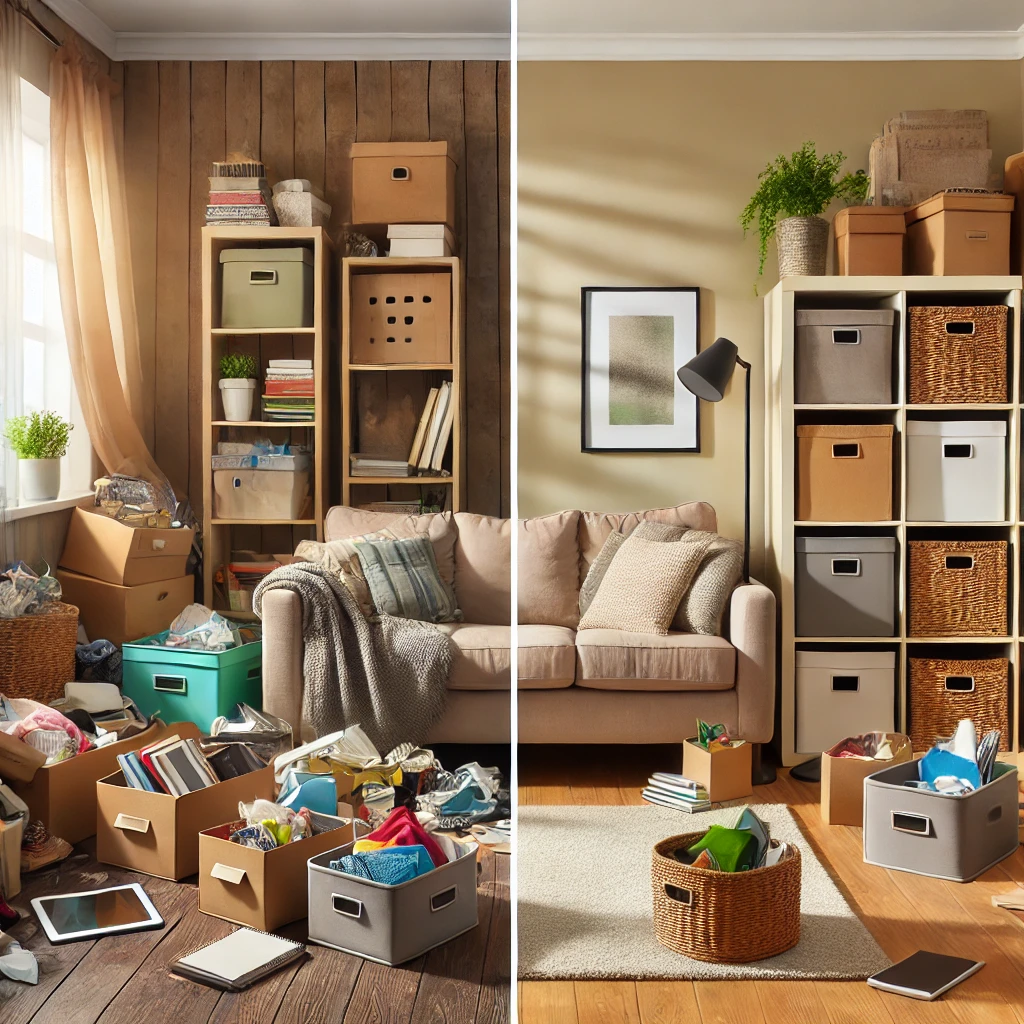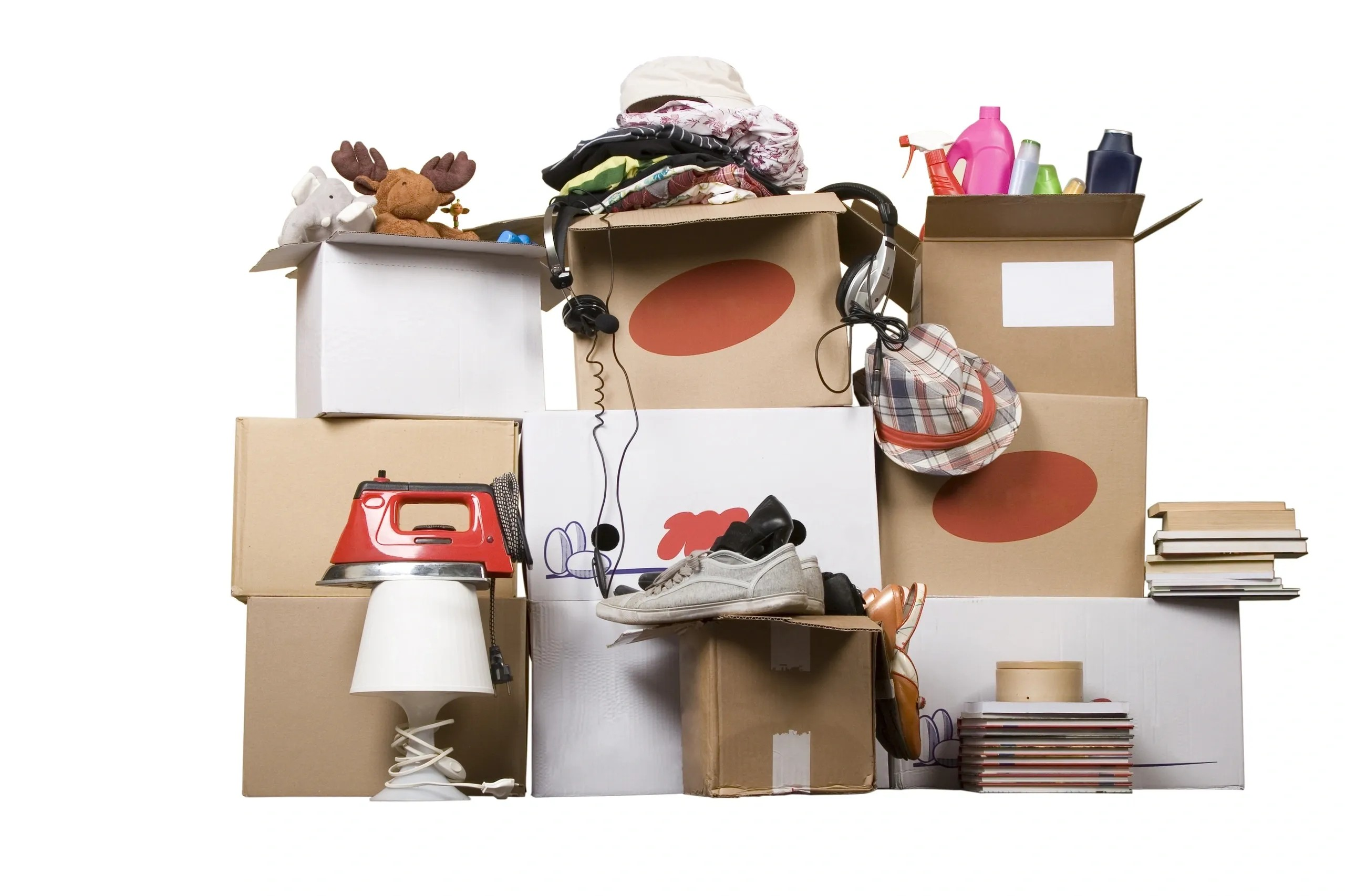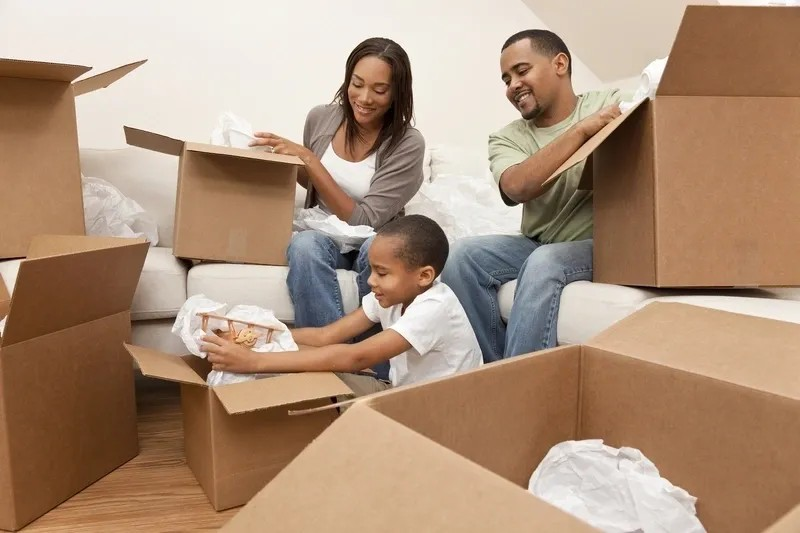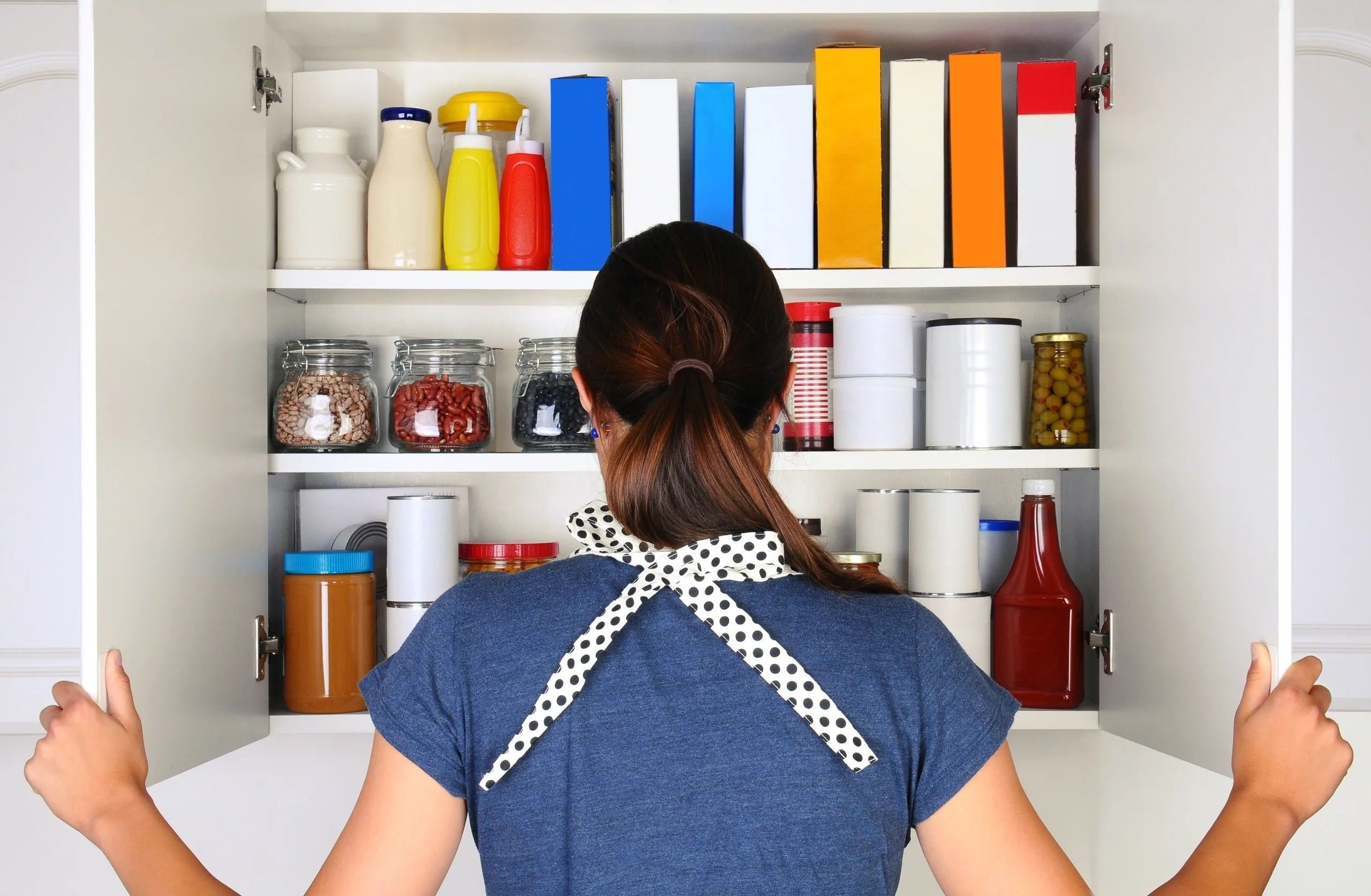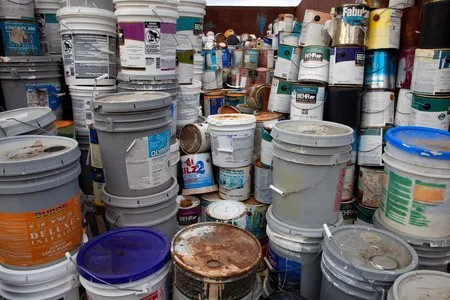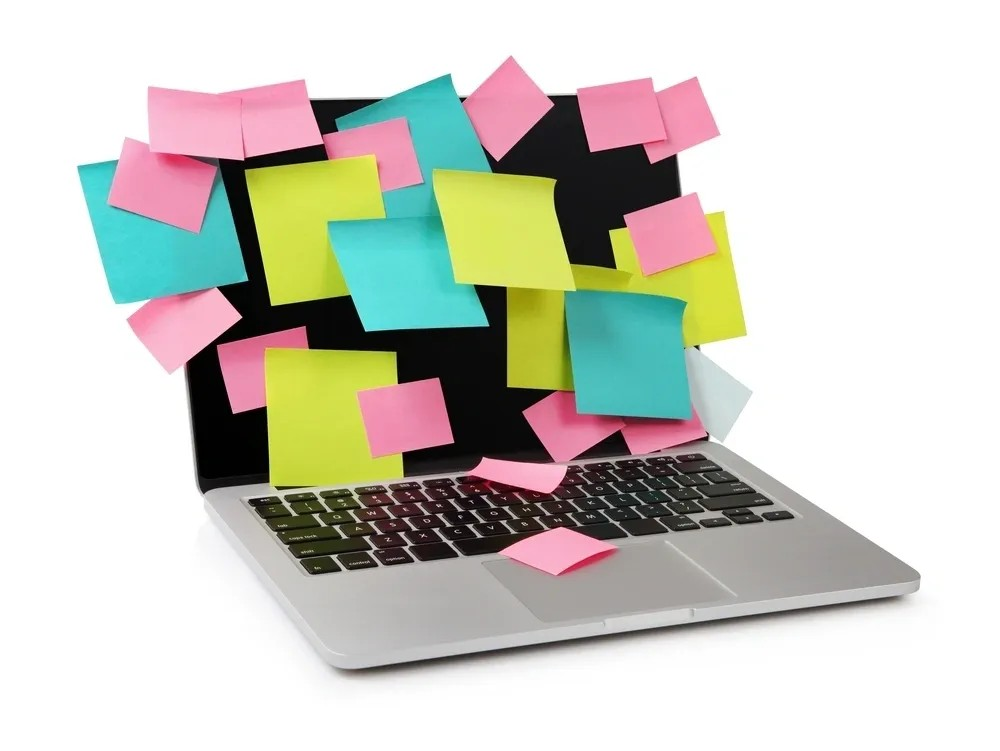Have you ever spent money on a solution that turned out NOT to be the solution you needed? Did you feel deflated, frustrated, and overwhelmed afterward? You may have wasted money, added to your clutter, and found yourself no closer to solving the problem. In fact, you might even feel worse.
Sometimes when I arrive at a client’s home, they proudly show me all the various bins and containers they’ve purchased in anticipation of my arrival. While their intentions are good, this approach often highlights a common cycle many of my clients experience when trying to get organized.
Let me illustrate with a scenario I hear often:
The Cycle of Frustration
“I was so stressed and frustrated with my clutter that one afternoon I dove right into it and started sorting. I created all these piles. At the time, I knew what the piles were for. Then I ran out of time and had to leave to pick up my dog from the vet. A few days later, when I went back to the room, the piles didn’t make sense anymore. Some had merged together because I went digging for an item I needed. It looked worse than before, and I felt discouraged.
Later, while shopping, I saw some beautiful containers in my favorite colors. I thought, ‘This is what I need to get organized!’ So, I bought 10 of them and brought them home. When I had some time, I started putting things into the bins. I enjoyed looking at all the items I was discovering, and before I knew it, the two hours I’d set aside were gone. Now I have things half in bins, half scattered, and I’m not even sure what’s in any of the containers.”
Does this sound familiar? If it does, let me assure you that you’re not alone—and it’s completely normal.
Why Organizing Can Feel Overwhelming
Clutter isn’t just about “stuff.” There are often multiple factors contributing to disorganization, and it’s rare for one quick fix to address them all. Here are some common “clutter players” that might be affecting your space:
- The Physical Stuff: The sheer volume of items you own.
- Family Dynamics: Communication and cooperation from others in the household.
- Mental Health: Motivation, energy, and emotional well-being.
- Emotions: Sentimental attachment, guilt, or decision fatigue.
- Neurodiversity: Challenges like ADHD, depression, or anxiety.
- Unhelpful Behaviors: Shopping to cope, avoiding tasks, or procrastination.
- Habits and Systems: Lack of routines or functional systems.
- Physical Limitations: Mobility, energy levels, or accessibility issues.
If you’ve purchased bins, books, or gadgets that haven’t solved the problem, step one is to let yourself off the hook. Beating yourself up over wasted time, money, or effort doesn’t help. Instead, ask yourself: What did I learn from this experience? Growth often comes from trial and error.
Why Buying Bins First Doesn’t Work
Professional organizers approach the process differently. A core tenet in organizing is this: Don’t purchase containers at the start of a project. Here’s why:
- You don’t know what you’re keeping yet. Sorting through your items and deciding what stays comes first.
- You might buy the wrong size or type of container. This can result in wasted money and effort.
- Containers can become clutter. If you don’t use them quickly, they’re hard to return, and you’re stuck managing more things.
Often, clients buy containers because it feels like progress. Shopping is fun, while decluttering can be emotionally draining. However, true progress happens when you’ve addressed the deeper causes of clutter and created systems that work for you.
The Real Solution: Start With the Process
Organizing isn’t about quick fixes—it’s a journey. If you’re tackling a cluttered space, here’s a better approach:
- Declutter First: Go through your items, sorting them into categories (keep, donate, recycle, toss).
- Assess Your Space: Decide where the items you’re keeping will “live.”
- Measure and Plan: Once you know what you’re keeping and where it’s going, measure the space to ensure you get the right containers.
- Buy Containers Last: Shop with intention, choosing storage that fits your space, needs, and style.
Quick Tip: Manage Your Purchases
Before buying anything—whether it’s containers or that fancy vegetable slicer at a county fair—ask yourself: Am I prepared to manage this item? Managing means cleaning it, using it, returning it, storing it, or eventually donating it. Most of us would benefit from managing less, not more.
The Bottom Line
If you’re starting an organizing project, resist the urge to buy containers first. Instead, focus on decluttering, creating systems, and addressing the deeper factors contributing to your clutter. And remember, it’s a process. Be kind to yourself along the way.
